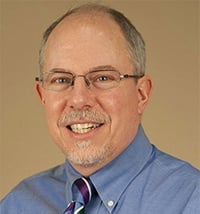Have you heard about a horse tranquilizer that rots flesh? A fungus that spreads between people? How do you know what is true? Should you be concerned or take any action?
Enter iHeard Colorado—a new initiative that gathers information on health topics Coloradans are talking about in real time, and then provides them with trusted and clear information.
The project will be led by Donald Nease, MD, director of Community Engagement and Health Equity in the Colorado Clinical and Translational Sciences Institute (CCTSI). Nease is also a professor of family medicine in the CU School of Medicine and leads the Colorado CEAL project.
“As we are increasingly focused on health equity issues and trust in science, iHeard is going to be a really useful resource for us to understand what people in communities, who are experiencing health disparities, are hearing,” said Nease. “That is going to be incredibly powerful in terms of helping us understand needs, rapidly respond, and provide an opportunity for us to deepen partnerships to address issues of equity.”
Nease and his Colorado collaborators are partnering with iHeard St. Louis. Additional NIH-funded CEAL teams will join the partnership, including the team that includes Maryland, Virginia and Washington, DC. Nebraska will also join the project.
The way the program works in St. Louis is that each week, 200 local residents answer a brief survey on their phone, asking what they have heard, seen or read about COVID-19 and other health-related information in the last seven days. Weekly response rates have ranged from 90-100%. The iHeard St. Louis interactive dashboard is updated weekly with the survey data, reflecting what people are hearing—and providing timely, scientifically vetted information in response.
Matthew Kreuter, PhD, an expert in health communications from Washington University in St. Louis, launched iHeard during the pandemic. “When St. Louisans hear inaccurate health information, it’s more likely to come from friends, family members and social media,” Kreuter said. “When they hear accurate health information, it’s more likely to come from news media. When we prepare and distribute accurate information to counter the false claims, we can then caution against certain sources that have been unreliable.”
“We are going to launch this in phases,” Nease said. “We will launch in the San Luis Valley community in southern Colorado first and slowly add other communities on a rolling basis.”
Nease said they hope to have the iHeard Colorado website go live in late July.
“What I am really excited about with this is the rapid turnaround,” Nease said. “In addition to the iHeard Colorado dashboard, we will push out information through trusted messengers in each community.”
These messengers will have printed and digital materials that address key areas where the information may not be getting out. The goal is to make sure iHeard Colorado is getting the best factual knowledge out to communities in response to what people are hearing and talking about in real time.



